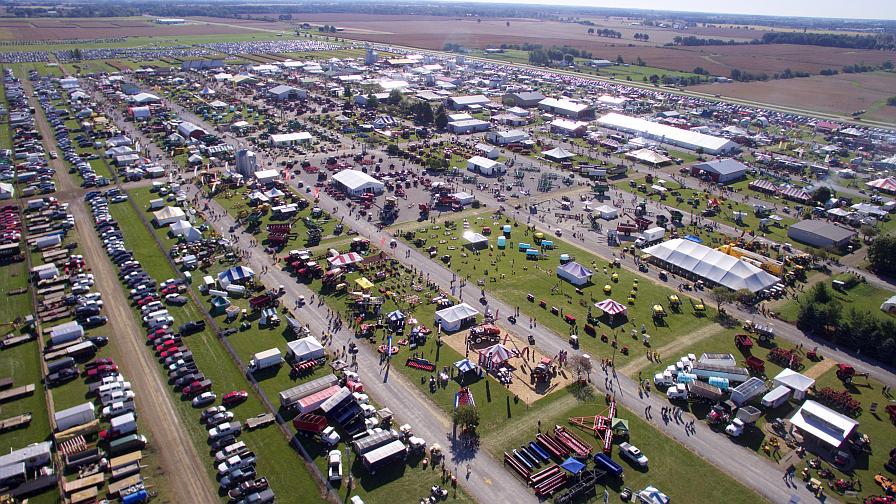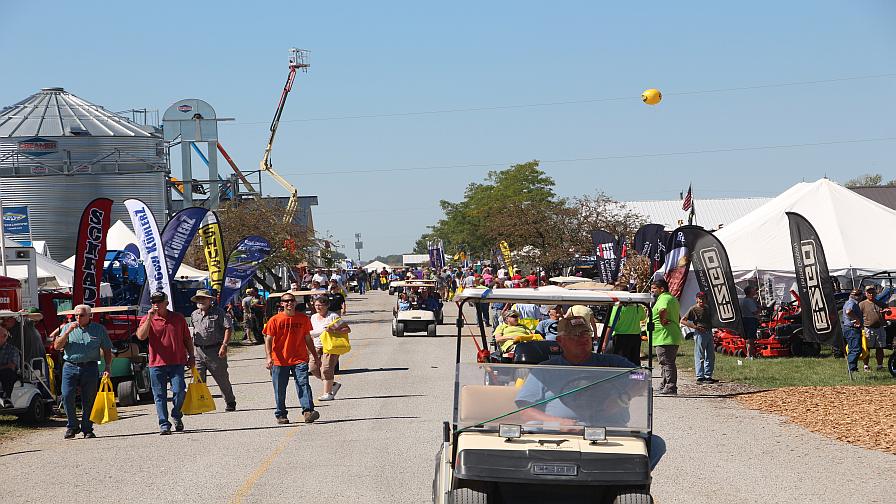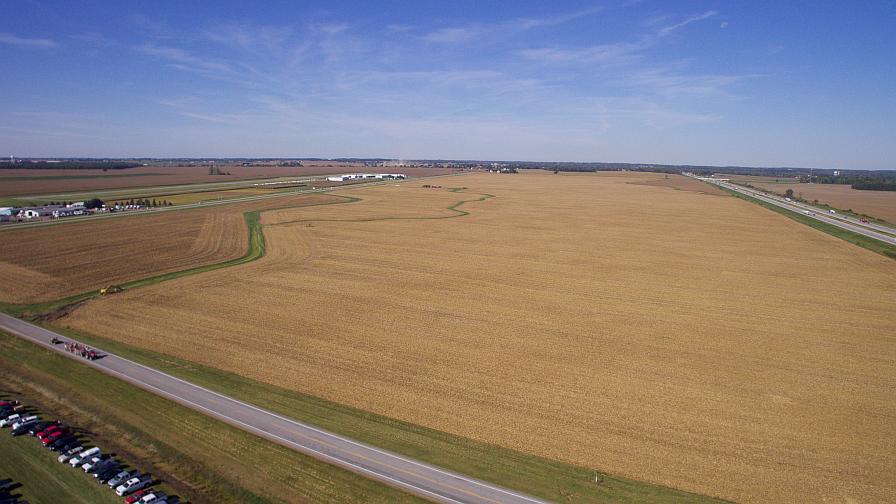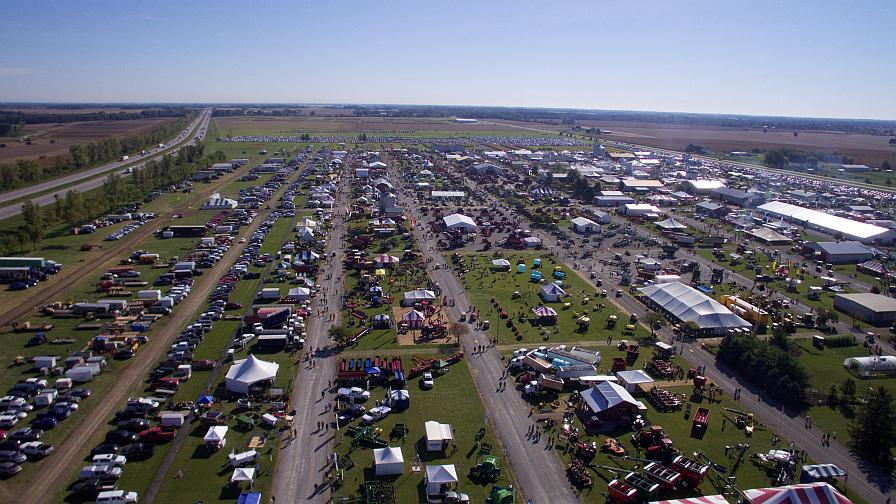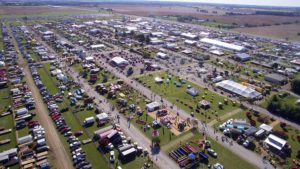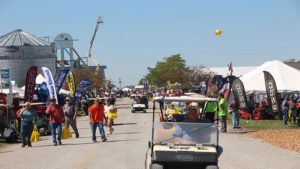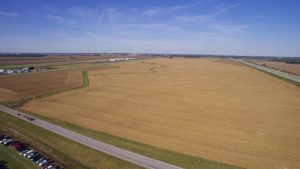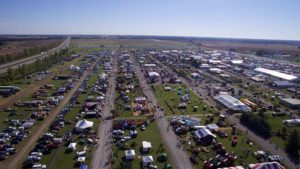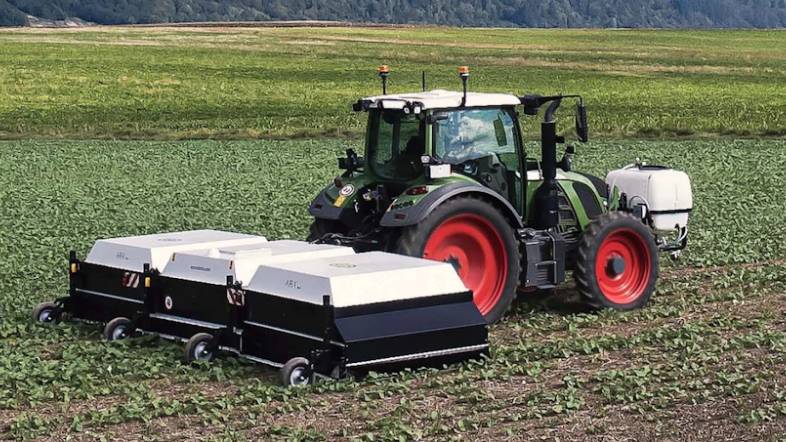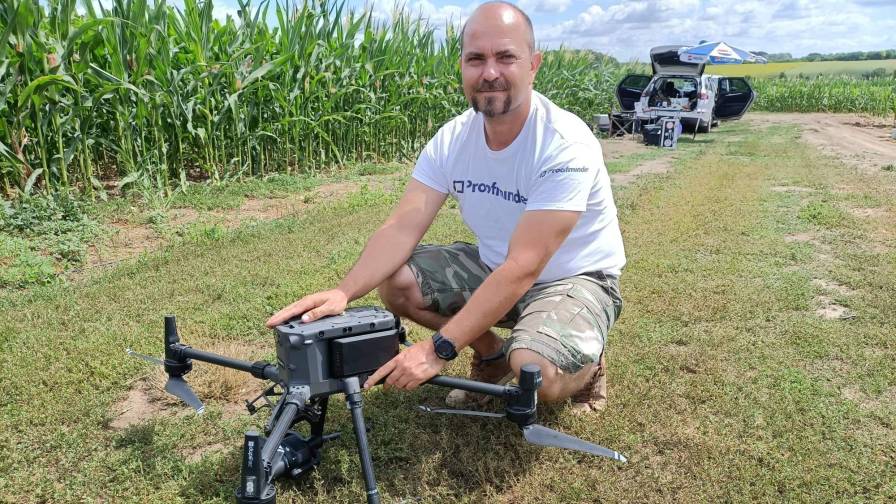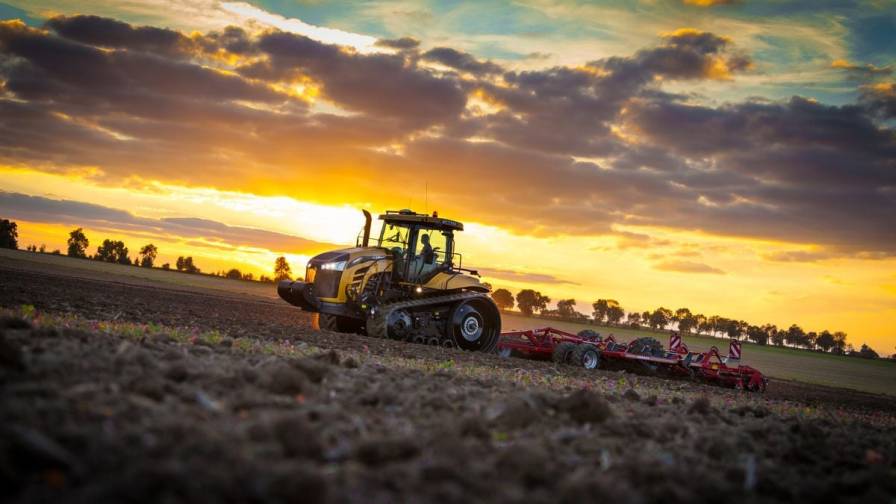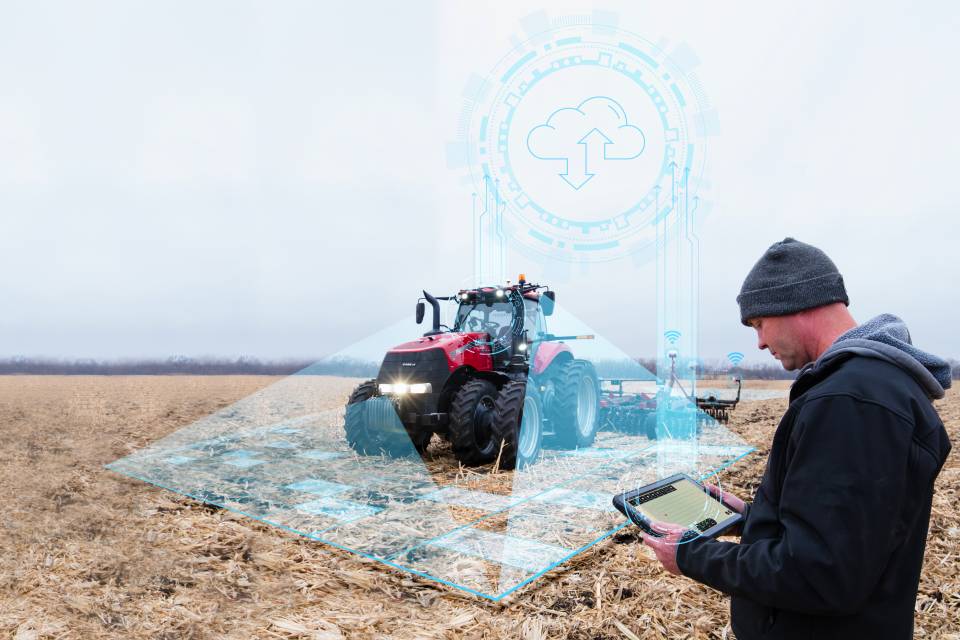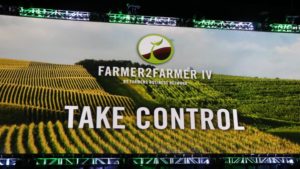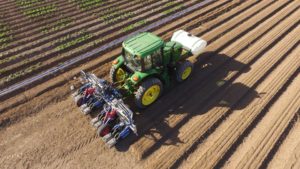2016 Farm Science Review: Talkin’ New Products, Education and Big Data
The Ohio State University’s Farm Science Review has become an annual rite of fall for Buckeye State growers, retailers and the rest of Ohio’s flourishing agriculture scene.
In a state where all-things-football basically rule the calendar from late-August into the dregs of winter, one can pretty much set ones’ watch to autumn once stepping foot on the Molly Caren Agricultural Center grounds in London, OH.
As is fast becoming tradition, a group of CropLife editors and sales pros took a spin around the show September 20, and I myself spoke with a couple of Precision Agriculture experts throughout the afternoon.
New AFS Offerings From Case
Case IH’s sparkly and imposing Magnum Autonomous Tractor Concept Vehicle once again drew the lions’ share of admiration on the equipment side of things, but AFS marketing manager Leo Bose — who’s been following Case IH’s pretty new robot pony around the U.S. farm show circuit since late July — had some other interesting news to share with PrecisionAg.com readers.
MORE BY MATTHEW J. GRASSI
VISION Conference Preview: Someday, AI Might Grow Better Plants than People
2019 Commercial UAV Expo: 3 Quick Revelations From an Ag Drone Expert
Specialty Crops: 8 More Precision Technology Companies We’re Keeping an Eye On
Bose says one of the newest feature sets that will “drive efficiency” from Case IH in 2017 is the release of AFS Connect two way file sharing.
“Before a producer had to take that USB that the data was written too and actually remove it manually from the vehicle — and that could be happening 20 miles from where I need that data to be — and now they can do that wirelessly through AFS Connect,” Bose says.
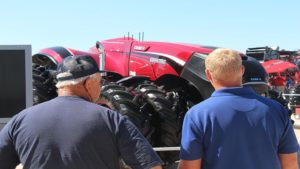
A couple of intrigued growers check out the new Autonomous Tractor Concept Vehicle at the Case IH booth September 20, 2016, at the 2016 Farm Science Review at the Molly Caren Agricultural Center in London, OH
Had you attended FSR or one of the other big farm trade shows this summer, you’d have likely noticed Bose and his team of rather-attractive iPad toting college co-eds collecting feedback from Case’s customer base on the autonomous concept vehicle. That same user feedback process had a hand in getting AFS Connect out to the masses, according to Bose.
“Our producers were saying ‘Hey, can you make it more efficient for me? When I look at that data transfer and I know that we now have this modem, how can we do it wirelessly — what is that feature and how can it be integrated into the cab?’” he explains. “So, we made it pretty seamless for that producer, they basically can see their data on the AFS Pro 700 and every thirty minutes it uploads that data to our AFS Connect portal, so they can get it to their trusted, third party advisor quicker for variable rate prescriptions , whether it’s seed, fertilizer or chemicals.”
Coupled with that release, according to Bose, is the ongoing launch of AFS RTK+ cellular correction services.
“That gets us down to that sub-inch accuracy and that repeatability year-over-year,” he explains.
Bose also shared an interesting tidbit for ag retailers to ponder that he’d gathered from talking with growers about the fall crop input purchasing planning process.
“They’re trying to make some purchasing decisions in the cab while they’re in fall harvest, and what that means is purchasing decisions – and this is mainly on the seed because they get the highest discount when they pre-book – so what they want to look at is yield (data) and they try to analyze what they did as that crop grew through its cycle. They now are wanting to see that information quicker, as well as trying to make that decision with more information. So, we see that trend continuing where they are trying to take that decision window down from maybe 30-60 days once they get the data in, to a much shorter time period.”
Catching Up With Friends
As I staggered through the stagnant near 90° degree midday heat and made my way into the Varied Industries tent (YAY Shade!), I came across Clark State Community College’s booth, manned by longtime friend to PrecisionAg.com and Agribusiness/Horticulture/Precision Agriculture professor Lawrence Everett, Ph.D. Clark State (Go Eagles!) is one of a small handful of precision-focused programs offered at the community college level this side of the Mississippi.
Always keen to engage with academia — I once dreamed of living the college life for eternity during a stint as a TA at my alma mater Cleveland State University — I asked Everett what was in store for his students, some of whom will undoubtedly be looking to our industry for gainful employment sometime soon, in 2017.
“Starting next year we will begin offering a new precision ag technicians degree as a result of the National Science Foundation grant that we were successful in securing, and as part of that we are also partnering with Parkland Community College (Champaign, IL) and Iowa Falls Community College to help develop curriculum,” he replies.
“This would focus more on the newest sensor techs, troubleshooting, installing all of the hardware and software components, and they would also certainly learn how to integrate data from UAVs and yield monitors, planting and variable rate sensors and all of those types of things.”
Another focus of his program at Clark State is adapting precision ag technologies from the corn and soybean world into the worlds of horticulture, nursery management, golf course operations, and local parks. Aside from all of that, Everett remains just like the rest of us precision ag nerds, wondering when this Big Data Revolution in Farming will realize its’ Boston Tea Party moment and go from underground to mainstream.
“We’re just at the beginning, in my opinion, and I like to tell our students that we’re training them for jobs that probably don’t even exist yet, or they haven’t even been thought up yet,” he says. “There will be things that we discover, ways to use these technologies that haven’t even been thought of yet. I always tell them to find what they love and find someone that’s willing to pay you to do that, and things will be great. It’s a very good career opportunity for our young people, especially because there’s a lot of interest and good paying jobs out there.”





